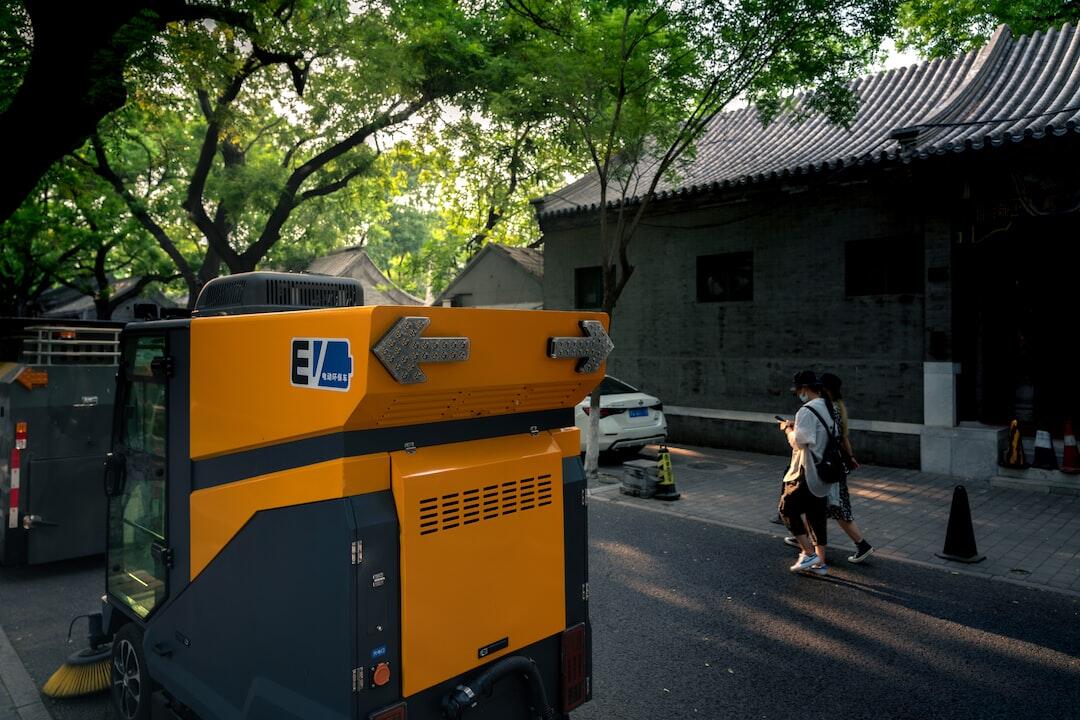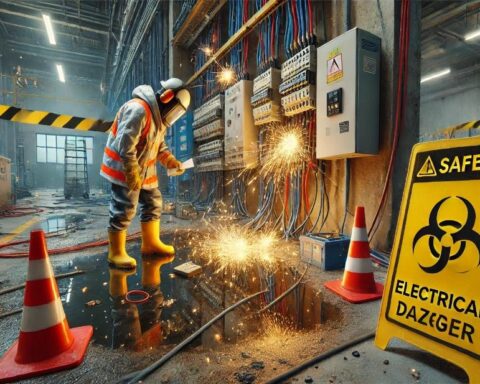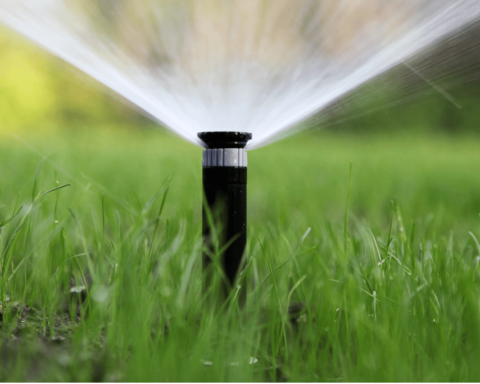Have you ever experienced a sudden power outage, leaving you in the dark?
In today’s world, ensuring a continuous power supply is crucial, especially during emergencies. A backup home power generator can be the solution to this problem, keeping your essential appliances running.
Choosing the right home power backup system may seem daunting, but understanding key features can make the process simpler. This article will guide you through the essential aspects to look for, helping you make an informed decision.
Types of Home Generators
Home generators come in various types, each offering different levels of power, convenience, and suitability depending on your needs. Here are the main types of home generators:
Portable Generators
Portable generators are versatile and easy to move. They are typically fueled by gasoline or diesel. Many models come with built-in wheels and handles for better mobility.
These generators are ideal for temporary power outages. They can power several essential appliances but require regular refueling and maintenance.
Inverter Generators
The quietness and effectiveness of inverter generators are well known. They give off a steady amount of power, which means they can be used to power sensitive gadgets like laptops and smartphones. Most of the time, these generators run on gasoline and use less gas than regular compact generators.
Because they are small and light, inverter generators are simple to move. For fun activities like camping or tailgating, where noise levels and flexibility are important, these are good choices.
Standby Generators
Standby generators provide an automatic backup power solution for homes. They are permanently installed outside your house and are connected directly to your electrical system. These generators usually run on natural gas or propane, ensuring a continuous fuel supply during outages.
Standby generators offer high power output, capable of running multiple appliances simultaneously. They automatically start within seconds of a power outage, providing seamless electricity to your home.
Solar Generators
Solar generators harness energy from the sun using solar panels. They convert sunlight into electricity and store it in a battery for later use. These generators are an eco-friendly alternative as they do not rely on fossil fuels.
Solar generators are mostly silent during operation. They are a reliable option during the daytime when sunlight is abundant.
Hydrogen Fuel Cell Generators
Hydrogen fuel cell generators are an emerging technology in the field of power generation. They produce electricity through a chemical reaction between hydrogen and oxygen. This process results in water and heat as by-products.
These generators are environmentally friendly as they do not emit harmful pollutants. Hydrogen fuel cell generators can provide a reliable power supply in various situations.
Power Capacity and Coverage
Selecting the right power capacity for a home generator requires careful assessment of your power needs. Home generators are rated in watts, and understanding your household’s total wattage requirements is crucial. Estimate the wattage of essential appliances and systems to determine the adequate power capacity for your home’s backup needs.
Coverage refers to how much of your home the generator can power during an outage. Some generators can power the entire house, while others may be limited to critical appliances. Choose a generator that offers the appropriate level of coverage based on your household’s comfort and safety requirements.
Transfer Switch Compatibility
A transfer switch is a crucial component for safely connecting a home generator to your electrical system. It functions as a bridge between the generator and your home’s electrical circuits. This switch prevents back-feeding electricity, which could be dangerous to utility workers.
The transfer switch provides a convenient way to switch from utility power to generator power. This ensures a seamless transition during power outages without manual intervention. If reliability is a concern, generator transfer switches can ensure a smooth transition between grid power and backup power without manual intervention.
Noise Level
Noise level is an important consideration when choosing a home generator. Different types of generators produce varying levels of noise. Portable and inverter generators are generally quieter than standby generators.
Be aware that, in residential areas, noise regulations may apply. Selecting a generator with a low decibel rating can help minimize disturbances to neighbors and yourself.
Fuel Type and Supply
Fuel types for generators include gasoline, diesel, natural gas, propane, and solar energy. Each fuel type has its pros and cons, like cost, availability, storage requirements, and emissions.
Gasoline
Gasoline is a common fuel type for portable and inverter generators. It is widely available and easy to obtain from local gas stations. Gasoline has a shorter shelf life compared to other fuel types and requires stabilizers for long-term storage.
Generators running on gasoline are typically easier to start but require regular refueling. This makes them suitable for short-term power outages or temporary use.
Propane
Propane is a common fuel type for standby generators. It is clean-burning and has a long shelf life, which is ideal for storage. Propane is generally stored in large tanks, often outside the home.
Generators that use propane can provide a reliable fuel supply in emergencies. They allow for extended operation times due to the fuel’s availability and storage capacity.
Natural Gas
Natural gas is a popular fuel choice for standby generators. It is delivered to homes via a utility pipeline, offering a consistent fuel supply. This eliminates the need for refueling during outages, providing continuous operation.
Natural gas is considered a clean-burning fuel. It is environmentally friendly and produces fewer emissions than other fossil fuels.
Dual-Fuel or Tri-Fuel
Dual-fuel generators offer flexibility. They can run on two types of fuel, usually gasoline and propane. This allows for adaptability during fuel shortages.
Tri-fuel generators extend this versatility. They can operate on three fuels, which often include natural gas. These options increase reliability in various outage scenarios.
Safety Features
Safety features are essential in home generators to ensure safe and reliable operation. Some crucial features to consider include:
Carbon Monoxide (CO) Detection
Carbon monoxide detection is a vital safety feature in home generators. It helps prevent dangerous CO buildup. Generators can emit CO, posing a health risk.
Install generators outside, away from windows or vents. Ensure CO detectors are functional to mitigate risks.
Overload Protection
Overload protection is a critical feature in home generators. It helps prevent damage to the generator and connected appliances. This feature automatically shuts down the generator if the load exceeds its capacity.
Generators with overload protection help protect your devices. They ensure the longevity of your investment.
Low Oil Shutdown
Low oil shutdown is a safety feature that automatically turns off the generator when oil levels are too low. This helps prevent engine damage that can occur when running on insufficient lubrication. It ensures the generator operates within safe parameters and extends the engine’s lifespan.
Generators equipped with low oil shutdown require less frequent maintenance related to oil-related engine issues. Regularly checking oil levels supports this feature’s effectiveness and contributes to optimal generator performance.
Size and Space
Picking the right generator size is important for getting the best results. Find out how much room you have in real life for the installation. Make sure the generator fits well in this area and that there is enough airflow.
Think about how big and heavy the generator is. These things will affect where and how you can put the unit in. As suggested by the maker, make sure there is enough space around the generator.
Warranty and Support
Warranty and support are crucial elements when purchasing a home generator. Warranties protect against potential defects and failures. They typically cover parts and labor for a specified period.
Reliable customer support can assist with troubleshooting and repairs. Choose a manufacturer with a good reputation for post-purchase service.
Starting Mechanism
What makes the starting process on a home generator so important? It decides how simple it is to turn on the generator when the power goes out. In generators, there are different kinds of ways to start them up.
A lot of new generators have a feature called “electric start.” It makes starting easy and quick with the push of a button. This function comes in very handy in emergencies where time is of the essence.
Installation and Maintenance
It is very important to put a home generator correctly so that it works safely and well. To make sure that local rules and safety standards are followed, it’s best to have a professional worker handle the setup. If the generator isn’t installed correctly, it can become dangerous and stop working as well.
To keep the generator working at its best, it needs to be serviced regularly. When you schedule maintenance, you can find and fix possible problems before they become big ones.
Power up Your Peace of Mind With the Perfect Backup Home Power Generator
Choosing the right backup home power generator ensures you have peace of mind during unexpected power outages. With various types and features, it’s important to determine your specific needs and priorities. Consider factors like fuel type, noise levels, and safety features before making a decision.
Proper installation and regular maintenance are key for optimal performance and longevity. Investing in the best home generators empowers you to safeguard your home and maintain comfort during emergencies.
Was this article helpful to you? If so, make sure to check out our blog for more useful information and resources.
Keep an eye for more news & updates on EssentialTribune.Com!








